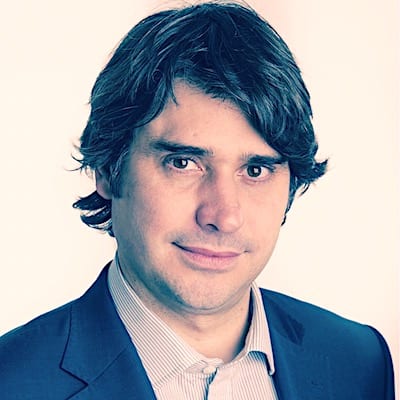Customer Logins
Obtain the data you need to make the most informed decisions by accessing our extensive portfolio of information, analytics, and expertise. Sign in to the product or service center of your choice.
Customer Logins
BLOG
Apr 23, 2018
Leadership transition in Cuba
President Raúl Castro's decision on 19 April to step down as president of the Council of State and Council of Ministers and hand over to First Vice-President Miguel Díaz-Canel marks a clear transition in leadership to a younger generation within the Cuban Communist Party (Partido Comunista de Cuba: PCC).
The ruling PCC is likely to remain stable and with President Raúl Castro steering the transition process to Díaz-Canel.
Díaz-Canel is perceived as progressive but loyal to the PCC's old guard Castro leadership and to the security apparatus. The PCC is likely to pursue policy continuity in the one-year outlook with Castro remaining as the first secretary of the party after stepping down, steering the transition and influencing policy. Although Cuba will remain a one-party system - with democratic political reform highly unlikely to occur - gradual economic reform will continue, albeit slowly. Change will be conducted in a manner that does not threaten the PCC's and the security apparatus' control or lead to democratic political reform that would pluralise the political system.
Díaz-Canel likely to continue Raúl Castro's economic policies and gradually open up the economy to foreign direct investment (FDI).
Díaz-Canel is likely to continue with reforms implemented by Raúl Castro to gradually open the economy to the private sector, increase the efficiency of state-owned companies, and attract FDI, but at a pace that does not trigger popular expectations of democratic political reform that would pluralize the political system. The tourism and food sectors are the most likely to benefit from post-Castro economic reforms and gradual improvement of the business environment. Upcoming policy announcements are likely to focus on formalizing private employment and attracting FDI.
US-Cuba relations unlikely to improve in one-year outlook.
US President Donald Trump has made clear his intention to undo many of the normalization efforts undertaken during former president Barack Obama's presidency. An improvement of US-Cuban relations remains conditional on meaningful and significant democratic political reform on the island.
Isolated events of civil unrest unlikely to pose stability challenge to the new administration.
Civil unrest risks in the form of spontaneous peaceful protests in Havana and in the western province of Santiago involving dozens of people are likely to moderately increase in the one-year outlook. Support among Cubans for the various dissident groups remains limited but is likely to continue slowly increasing, although not threatening the PCC's grip on power.
Indicators of changing risk environment
Increased risk
- US Congress legislation, US Treasury or Department of Commerce regulations imposing new restrictions on business or travel to Cuba.
- Statements from major Western democracies, including Canada, the US, and European Union countries (principally France, Italy, Spain, and the United Kingdom) that hold investments in the island, and Latin American countries urging the new administration to follow democratic political reform or face international sanctions and isolation.
- Reductions in government spending on education, pensions, social assistance, welfare, health, and housing implemented by the previous administration continuing to drive discontent and to provide some incentive for civil society initiatives to start being considered as feasible alternatives to the new government.
- Spontaneous violent protests against the new administration in Havana, Santiago, and other urban centres demanding democratic political and economic reform becoming more intense.
- Civil society actors seeking to peacefully challenge the PCC's authority via peaceful protests, graffiti, and other direct-action activities. This includes dissident leader Rosa María Payá, who has been attempting (with little success to date) to build a civil society platform known as Cuba Decide (Cuba Decides), with the aim of holding a binding referendum demanding free and fair elections.
- Venezuela sending less or no daily oil supplies in exchange for Cuban professional services (Cuba's main source of income) as result of collapse of the South American country's economy or regime change.
- Statements from major Western democracies including Canada and the US and EU and Latin American countries congratulating the new administration.
- The EU and the US stating willingness of starting rapprochement efforts, in a similar fashion as with the previous administration of US President Barack Obama, with new administration focuses on economic development, democracy, and human rights.
- Popular response supporting the new administration and security forces quelling isolated events of protests that are contained before they become widespread.
{"items" : [
{"name":"share","enabled":true,"desc":"<strong>Share</strong>","mobdesc":"Share","options":[ {"name":"facebook","url":"https://www.facebook.com/sharer.php?u=http%3a%2f%2fwww.spglobal.com%2fmarketintelligence%2fen%2fmi%2fresearch-analysis%2fleadership-transition-in-cuba.html","enabled":true},{"name":"twitter","url":"https://twitter.com/intent/tweet?url=http%3a%2f%2fwww.spglobal.com%2fmarketintelligence%2fen%2fmi%2fresearch-analysis%2fleadership-transition-in-cuba.html&text=Leadership+transition+in+Cuba+%7c+S%26P+Global+","enabled":true},{"name":"linkedin","url":"https://www.linkedin.com/sharing/share-offsite/?url=http%3a%2f%2fwww.spglobal.com%2fmarketintelligence%2fen%2fmi%2fresearch-analysis%2fleadership-transition-in-cuba.html","enabled":true},{"name":"email","url":"?subject=Leadership transition in Cuba | S&P Global &body=http%3a%2f%2fwww.spglobal.com%2fmarketintelligence%2fen%2fmi%2fresearch-analysis%2fleadership-transition-in-cuba.html","enabled":true},{"name":"whatsapp","url":"https://api.whatsapp.com/send?text=Leadership+transition+in+Cuba+%7c+S%26P+Global+ http%3a%2f%2fwww.spglobal.com%2fmarketintelligence%2fen%2fmi%2fresearch-analysis%2fleadership-transition-in-cuba.html","enabled":true}]}, {"name":"rtt","enabled":true,"mobdesc":"Top"}
]}




